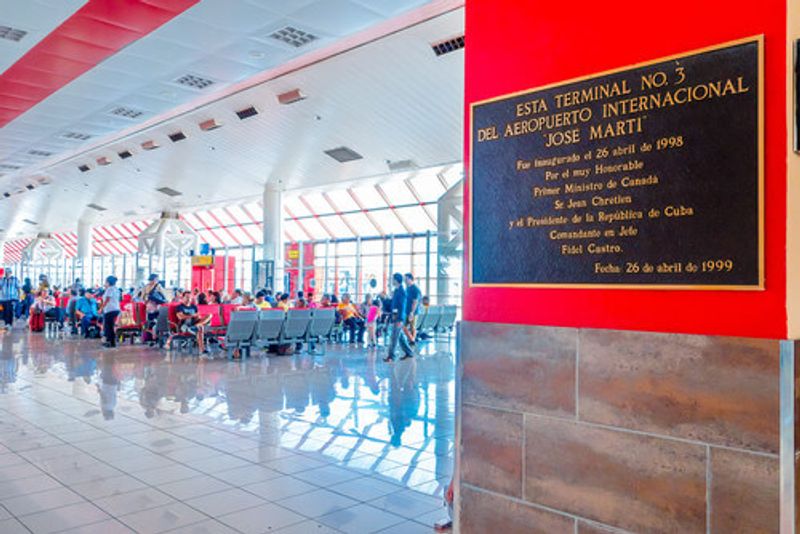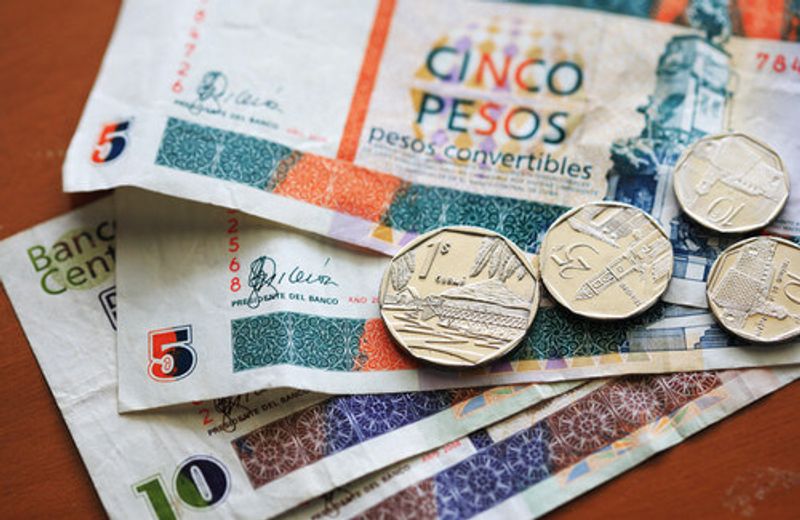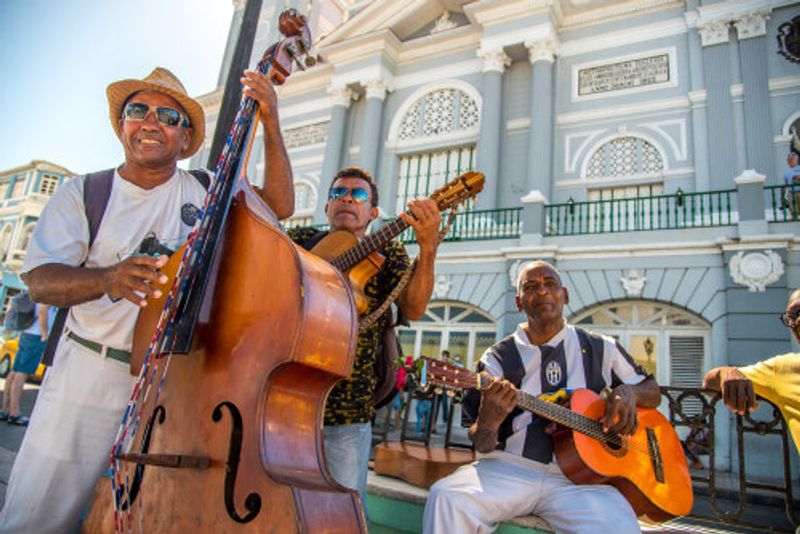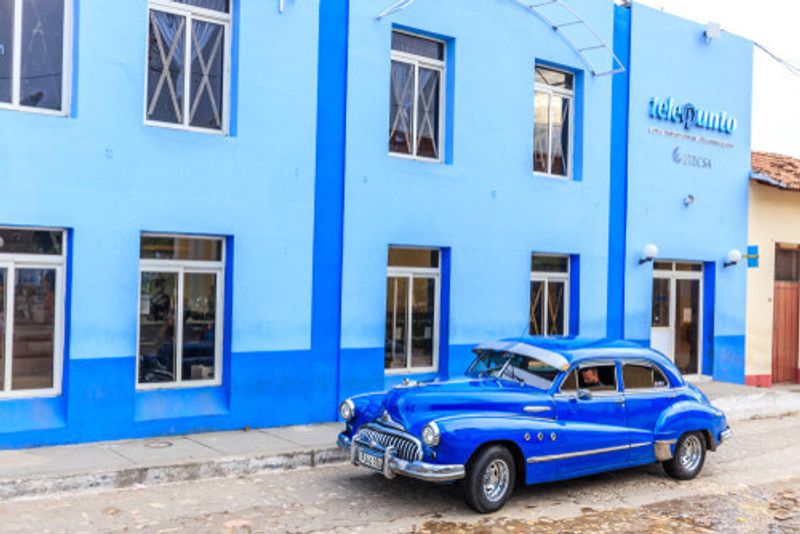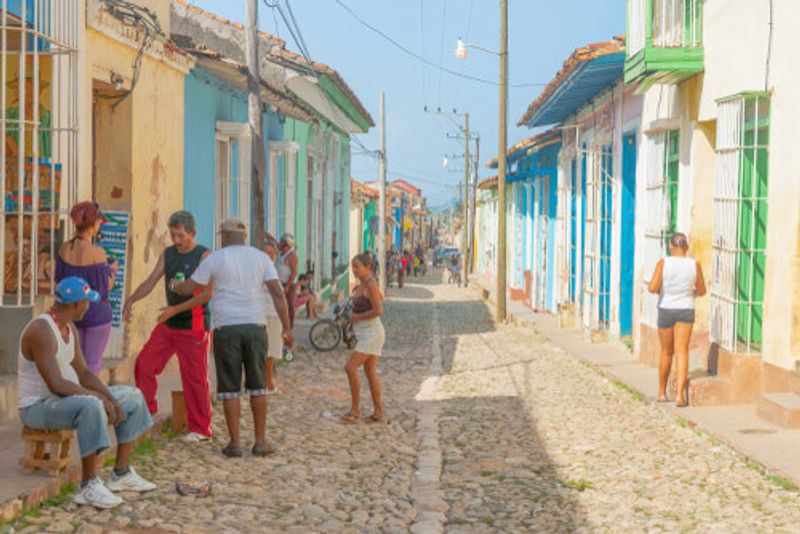Caribbean Cuba has mystified travellers for decades with its lively culture and geopolitics—here’s everything you need to know about planning your trip of a lifetime
For so long, timeworn Cuba was reserved for the most adventurous travellers. Its cities were shrouded in mystery and its cobbled, colonial towns were all but closed to foreigners. But the landscape, both physically and mentally, is changing. More people than ever are visiting the vibrant streets of this Caribbean gem to see what Cuban hospitality is all about, and explore the country while it retains its authentic spirit.
Here, everything you need to know for your first trip to Cuba.
Travel insurance, visas, passports
Travel insurance is compulsory for entry into Cuba. Please ensure your travel insurance policy covers Cuba as a destination. If you are utilising credit card insurance please check that it will cover travel to Cuba and obtain a copy of the policy to carry with you as you may be asked to present a copy of your travel insurance on arrival in Havana.
It is the traveller's responsibility to ensure they have a valid passport. Your passport must be valid for a minimum of six months from the intended date of return. Visas may be required to travel to Cuba and entry requirements are subject to change without notice. For the most up-to-date visa requirements, we recommend visiting the official travel advisory site in your country of residence or the passport you intend to travel to Cuba with:
In Australia, visit Smart Traveller
In New Zealand, visit Safe Travel
In the United States, visit Travel. State. Gov.
In Canada, visit Travel Advice and Advisories
In India, visit Ministry of Home Affairs
Currency
Cuba's official currency is National Peso (moneda nacional or CUP). Canadian dollars, Mexican pesos and Euros can be exchanged at currency exchange stores. Australian currency can't be exchanged in Cuba and other currencies may be difficult to exchange.
Due to the banking arrangements in Cuba, you may have difficulty accessing funds. Credit cards, debit cards and traveller's cheques aren't accepted in Cuba if they're issued by US banks or Australian banks affiliated with US banks. Before you travel, check with your bank if your cards will work in Cuba.
ATMs are limited outside Havana. Make sure you have a variety of ways of accessing your money and consider having an emergency supply of cash.
Tipping
In Cuba, tipping is an important part of life. Many Cubans live on government salaries, taking home less than US$50 a month, so while a few dollars may not be much to you, it could significantly help your driver, hotel staff or anyone else who assists you during your travels. Additionally, if someone goes out of their way to help you on the street, or promises you entry to a special event, you can expect they’ll ask for a tip. Carry plenty of small notes with you, and aim to tip around 10% of the bill at restaurants (more for great service).
Telcommunications and the internet
The internet in Cuba isn’t as simple as finding a network and entering a password. Here, Wi-Fi (pronounced 'wee-fee' in Spanish) is government regulated and only accessible in designated hotspots across the country. There are just under 1,000 hotspots, scattered in public parks, plazas and busy promenades; if you see a cluster of people on their phones, there’s a good chance they’re surfing the net.
Be aware that you may not be able to access the entire network and certain websites are blocked. Travellers should prepare themselves for having inconsistent access to the internet and most mobile providers don’t offer roaming in Cuba, so double check with your provider before departure.
To access Wi-Fi, you’ll need to purchase a NAUTA internet card, either from an ETECSA (Cuba’s telecommunications company) office, or from a hotel (your guide may be able to assist). To use, find a hotspot and enable Wi-Fi on your phone. A login screen should appear, asking you to enter the usario (username) and contraseña (password) on the back of the card. Once that’s accepted, you’ll be connected. Just make sure to click cerrar sesión (log out) if you want to stop using Wi-Fi and save your remaining minutes for another time.
While the network gets stronger, cheaper and more accessible every year, don’t expect the speeds you get at home. Instead, embrace the Cuban way and enjoy your time off the grid.
Language
The official language of Cuba is Spanish, but the country’s location and historic African ties mean that a small percentage speak other languages like Lucumí, Haitian and Creole. Due to Cuba’s isolation from the west, many older people never learned English, unless they were involved in the tourism industry.
In Havana, a growing number of young people are learning English and are eager to interact with visitors. Ultimately, whether you speak to locals in Spanish or English is up to you, but the more you can communicate, the richer your experience will be.
Safety
While there’s a lingering stereotype that Latin America is dangerous, the opposite could be said for Cuba. Serious crime rates across Cuba are also very low; unlike most places around the world, there’s practically no dangerous, off-limits areas, even in Havana.
Other than keeping your wits about you, as you would anywhere, the only thing to be aware of is petty theft and swindlers. These professional scam-artists or jineteros target tourists and offer everything from Cuban cigars, to private tours, or exclusive restaurant entry, all in the pursuit of dinero (money). Thankfully, jineteros are typically friendly and non-violent—most of them live off the tips garnered from generous visitors. In most cases, if you give a firm no gracias (no thanks) or no me molestes (don’t bother me), they’ll leave you alone.
Finally, set your expectations accordingly
Cuba is home to beautiful landscapes and a vibrant culture, but it’s important to remember that this country isn’t like its glamourous Caribbean neighbours. Facilities across Cuba are relatively basic and its hotels, while perfectly clean and comfortable, shouldn’t be compared to western 5-star standards. B&Bs are among the best accommodation options, as they connect you with locals and have their own distinctive charm. Plus, by staying in homestays, you’re directly supporting the Cuban people.
Between touring the colonial streets, taking salsa classes and relaxing on the pristine coastline with a mojito in hand, you’ll barely have time to worry about accommodation, anyway.
